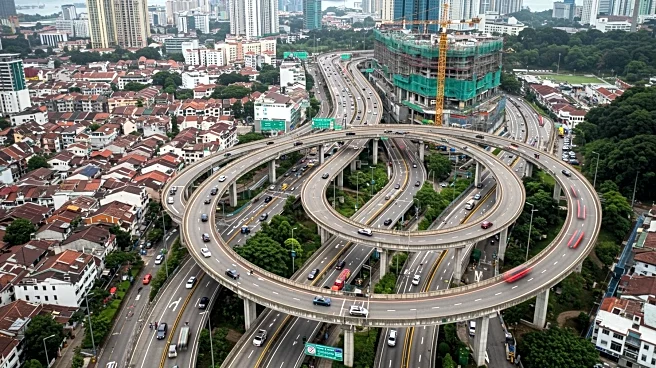What's Happening?
Activists in Penang have criticized the state government's focus on large-scale infrastructure projects, such as the Light Rail Transit (LRT) and new highways, as the cause of worsening traffic congestion. They argue that these projects are costly and unlikely to provide effective relief. Instead, they advocate for more affordable and immediate solutions like dedicated bus lanes and adaptive traffic lights. The criticism comes after Chief Minister Chow Kon Yeow warned of 'traffic nightmares' due to ongoing construction. Activists suggest that the government should prioritize low-cost measures to alleviate congestion while the mega projects are underway.
Why It's Important?
The situation in Penang underscores the challenges urban areas face in balancing infrastructure development with immediate transportation needs. The focus on mega projects reflects a broader trend in urban planning, where long-term solutions often overshadow more immediate, cost-effective measures. The criticism from activists highlights the potential disconnect between government priorities and public needs, emphasizing the importance of inclusive planning processes. The outcome of this debate could influence future urban development strategies, not only in Penang but in other cities facing similar challenges.
Beyond the Headlines
The ongoing traffic issues in Penang also raise questions about sustainable urban planning and the role of public participation in decision-making. The reliance on large-scale projects may reflect a preference for prestige over practicality, potentially leading to inefficient use of resources. The situation calls for a reevaluation of urban planning priorities, considering both short-term and long-term impacts on communities. Additionally, the debate highlights the need for transparent governance and accountability in infrastructure development.











